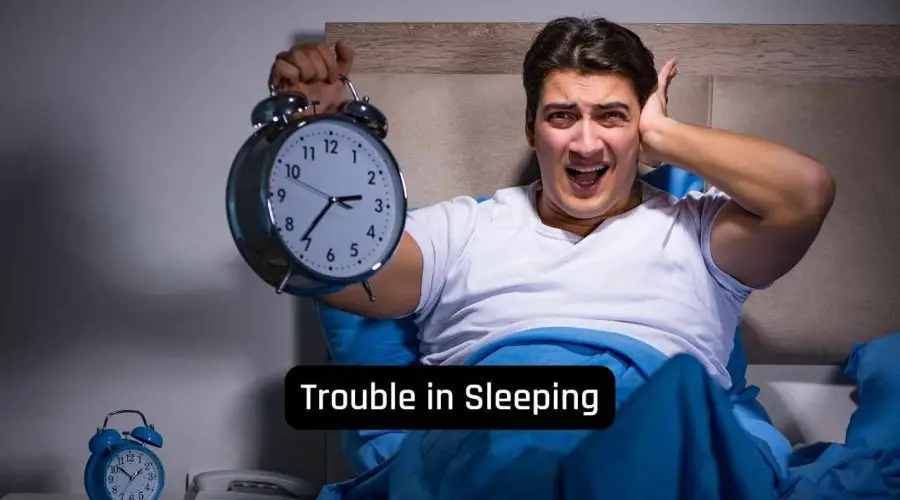Trouble Sleeping? Here is What you Can Do
I am sure you must have come across people who complain of never sleeping fitfully throughout the night. Sleep disorder is a common condition where one’s ability to have sound sleep on a daily basis is compromised. It is a condition that is becoming increasingly common nowadays. An underlying health problem or too much stress can be the main culprits behind sleep disorders. Increased use of social media along with other social influences is another recent factor that triggers sleep disorders.
It is a known fact that an average person needs 6 to 8 hours of sound sleep to stay healthy. However, a regular sleeping problem on a mostly daily basis makes the daily routine problematic indicating that one may have a sleeping disorder. This can have a negative impact on our overall health.
Sleep deprivation can also affect one’s personal relations, and performance at work, and can cause problems in one’s ability to perform day-to-day activities.
It is observed that people experiencing sleep deprivation are more likely to suffer from chronic disorders. Diabetes, Hypertension and Obesity are a few common problems associated with a Sleep disorder. The quality of life deteriorates, which can further lead to poor concentration, auto accidents and less productivity.
This disorder needs to be identified on time or else in many cases, a sleep disorder can also lead to many serious conditions like Cancer, ADHD, bipolar disorder, eating disorders, substance abuse etc.
Let us now look at various types of Sleep Disorders
There are more than 80 different sleep disorders, however, generally, we come across the two most common Sleep disorders which are listed below
Insomania
Insomnia is the most common form of sleep disorder. It refers to the inability to fall asleep or to remain asleep. Common causes of insomnia are stress, jet lag, anxiety, hormones and digestive problems. Almost everyone goes through bouts of sleeplessness from time to time. But if someone struggles to fall asleep or wakes up at night or early in the morning and finds it difficult to fall back asleep, and this happens at least three times a week for a few months, that person is likely suffering from chronic insomnia.
Symptoms of Insomnia
- Difficulty falling asleep (most common)
- Difficulty staying asleep
- Waking up too early.
- Anxiety and stress at bedtime
- Rumination(Overthinking) about getting enough sleep
- Not feeling well-rested after a night’s sleep.
- Difficulty paying attention, focusing on tasks or remembering.
- Irritable mood
- Increased errors or accidents.
Normally, insomnia develops at a time of increased stress in life and tends to be more prevalent among women, elders and psychologically disturbed and socially and economically disadvantaged people. Women are especially sensitive to irregular sleeping habits because of the hormonal changes they experience during pregnancy and perimenopause. Studies indicate that about one in four women is currently experiencing insomnia symptoms.
When insomnia is repeatedly experienced, it can lead to an increased fear of sleeplessness and a preoccupation with its consequences. This creates a vicious circle which tends to perpetuate the individual’s problem. Some people are at risk of insomnia due to environmental changes such as shift work and jet lag. People who do not get enough exposure to sunlight during the day can also have trouble sleeping. Drinking too much caffeine or overheating a bedroom can also interfere with sleep.
Hypersomnia/Excessive Sleepiness
It is characterized by excessive daytime sleeping. and prolonged sleep during the night. People suffering from hypersomnia are compelled to nap repeatedly during the day, often at inappropriate hours such as at work, during a meal, or in conversation. This symptom is generally accompanied by anxiety, decreased energy, slow thinking and in severe cases hallucinations.
Now let us look at the Causes of Sleep Disorders:
• Stress and Anxiety
Stress and anxiety is the most common reason which leads to sleep disorders. When one is stressed there is a release of the stress hormone cortisol hinders relaxation and leads to an imbalance in the sleep cycle. The stress of unfinished tasks, next-day presentations and other work-related and personal life stress can lead to sleeplessness.
• Allergies and Respiratory Problems
A lot of sleep disorders are directly related to breathing. Upper respiratory infections, chronic allergies and the common cold can make it challenging to breathe at night. Chronic pain
Constant pain in any part of the body can make one sleep-deprived . It can also make one wake up after falling asleep.
- Parenting Struggles
Taking care of a newborn child can be taxing on sleep as the infant’s sleeping pattern is very inconsistent. Dealing with an ill child for parents or problems related to children’s growth or studies or future can also lead to sleep disorders for parents.
- Social Media Use
The latest hindrance to sound sleep is the excessive use of social media. People wake up early or sleep late and are preoccupied with looking at social media sites, with other people’s status updates and lifestyles. Social media addiction can lead to inconsistency in sleeping patterns and it is now looked upon as a major reason for sleep disorders.

